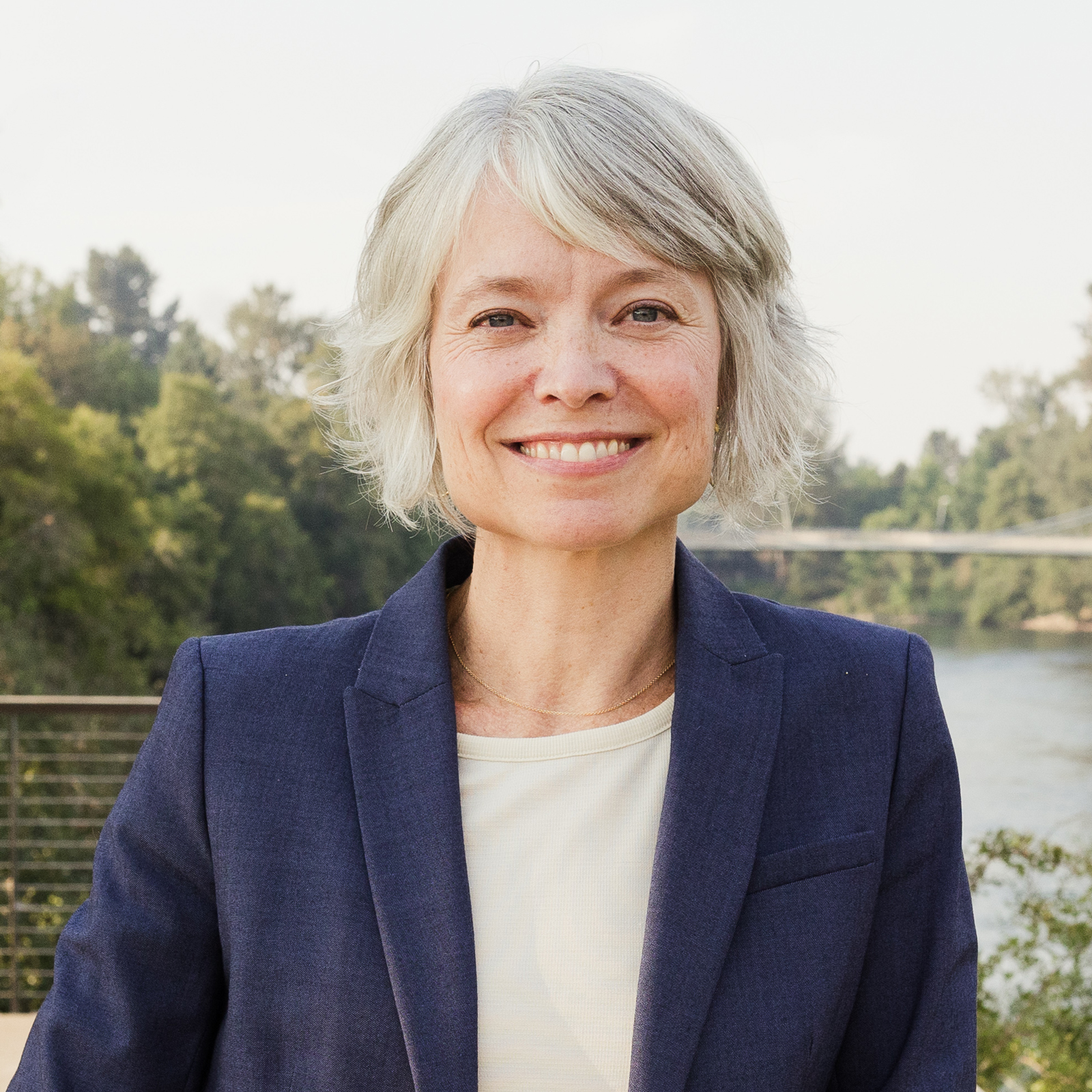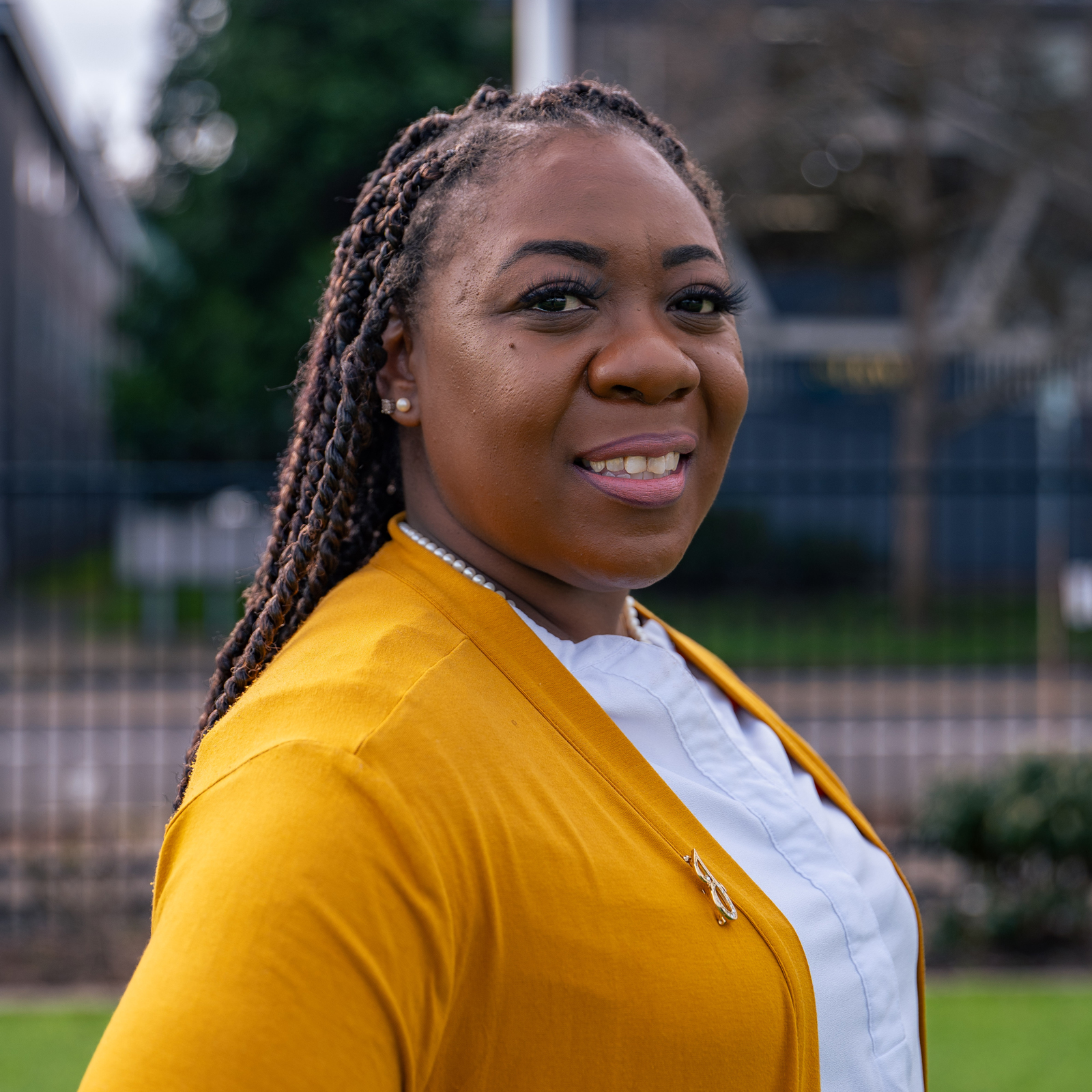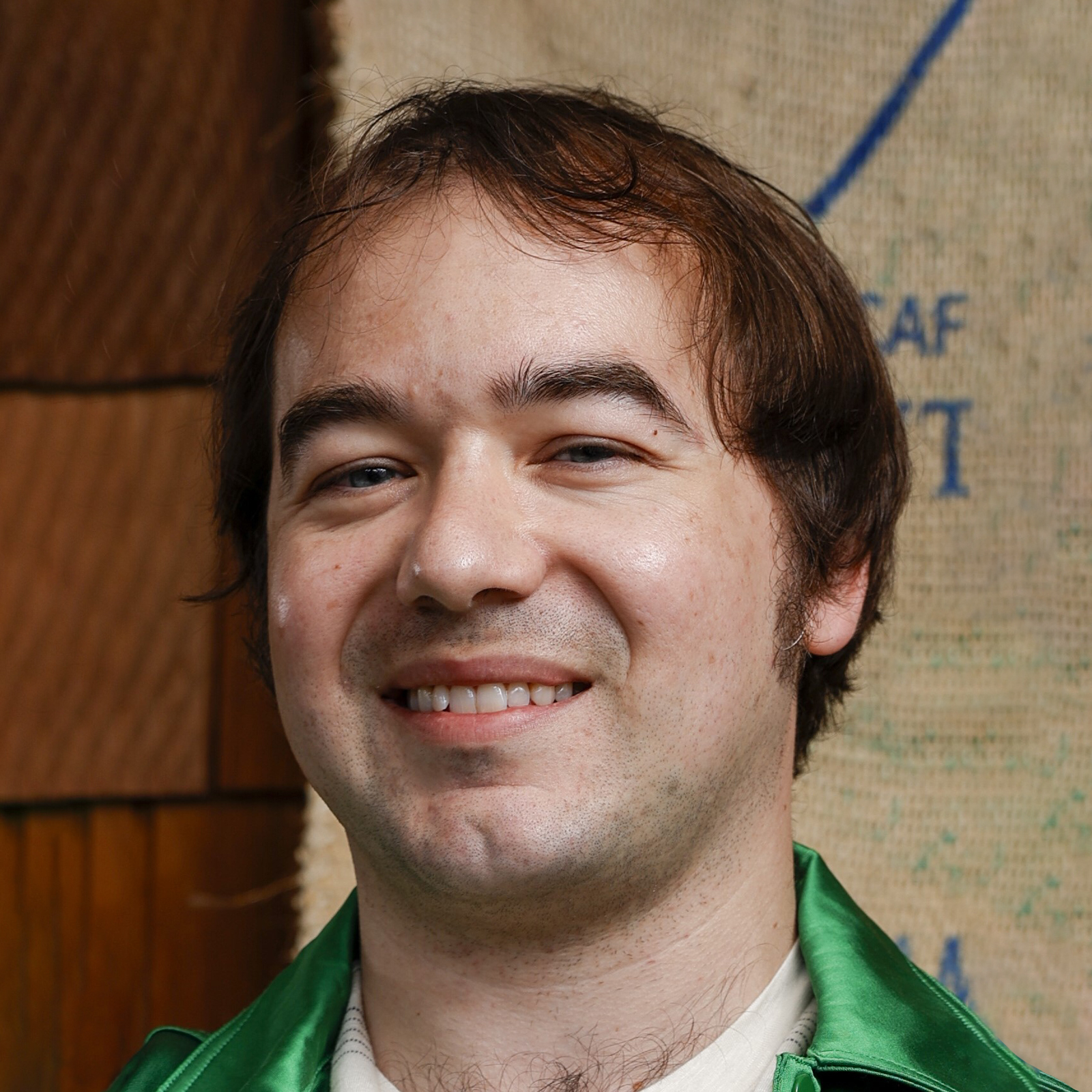2024 mayoral candidates weigh in on how arts & culture matter to our community
WHAT THE ARTS MEAN TO EUGENE
The Arts & Business Alliance of Eugene asked each candidate to fill out a questionnaire on the impact of arts & culture on our community.

Kaarin Knudson
kaarinformayor.com
I am an architect, a writer, a design educator, and an artist. When reflecting on what is integral to my life, I think about connection, expression, integrity, and compassion—all values which the arts have helped me to deepen, expand, and share.
The arts played an essential role in my upbringing—especially through music and the visual arts, but even occasionally in performance. Early forays led to more confident explorations as a young pianist and violist, then opportunities to explore formal education in design, writing, printmaking, painting, letterpress, and sculpture. From that foundation in studio art and creative nonfiction, I pursued my own creative work, practiced as a journalist and designer, and honed the skills that have supported my career in architecture. My bookshelves are filled with artists’ and architectural monographs; the walls of our home hold artworks carefully collected and curiously created. Our family lives a life in which the arts are essential, present and living with us every day. I received this gift as a young person, and it’s important to share with my own daughters.
On a very personal level, the arts can be a place of expression and refuge. These days, I am most likely to play piano or create art when reflecting on the day. Music is always restorative and fortifying. When I sit at our piano, I feel connected to the generations of family who learned to play on it, to the distances it has traveled, and I recall my own childhood in my grandparent’s home. These memories I hold are not a part of the music – but, for me, they are part of the art.
One way of increasing access to arts and culture programming is through expanded partnerships with our school districts and businesses. Student art exhibits and programs that assemble work from students across the community are two reliable ways to bring more kids and families to our city’s public spaces, including the new City Hall.
I am also excited to build on connections among our community-based organizations and neighborhood associations to develop neighborhood-specific arts programs akin to the 20×22 mural project—in this case, it could be more like 23×26 and include new, community-created placemaking projects with all 23 neighborhoods. I look forward to supporting new models of equitable public engagement that we have piloted with local housing policy work, but we also need opportunities to engage in civic life that is neither testimony nor policy. Art opens the door to that experience.
Eugene is also internationally known for our recreational spaces, trails, and open space. I would champion a program to integrate new public art among our most storied bike trails, park overlooks, running trails, and gathering spaces. Many people living in or visiting Eugene experience our city primarily through recreation, and this presents a great opportunity to share our arts and culture in a new way.
In other cases, we can meet this goal by expanding exciting programs like “Cultural Currents” through more areas of Eugene. We also have great opportunities for partnership with Lane Transit District with new transit stops and stations, and to partner with our neighborhood associations on beautification and placemaking projects. As mayor, I will support the creation of a community arts program that engages and celebrates the community in Eugene’s distinct neighborhoods. Working with neighborhoods and CBOs to design this program would be one step toward expanding equity; the outcomes could be the creation of new public art, installations, or furnishings.
Our arts and culture programming can be leveraged in support of this work through programming that allows people to gather and share experience, and through works and installations that allow for reflection and contemplation. Art can also help to prompt and sustain our conversations and continued work. It is no surprise that efforts to support the arts, the outdoors, and a sense of belonging are so central to so much of our work.
With the new City Hall opening in 2024, we also have an opportunity to feature art and rotating exhibits in a newly accessible public building—one that is free to visit and belongs to the people of Eugene. I will support the use of this exhibit space as a centerpiece for our arts and culture community.
Furthermore, the permanent collection and exhibits in City Hall can support a larger and more adventurous engagement with arts and culture throughout the Downtown Riverfront and adjacent districts. Fifteen years ago, I worked on the development of the Downtown Riverfront Master Plan and the “Cultural Landscape” concept that has guided the development of public space as a rich, layered, teaching landscape. Especially for young people, there are many opportunities to teach about our history and future through interpretive and artistic installations in this area. I am excited to see this vision come to fruition in the decade ahead, and especially to continue the work of honoring our community’s Black history—which has roots along the north bank at the Ferry Street Community site and the historic Mims Houses—but reaches all across Eugene.
Partnerships play an important role in arts & culture.
I will bring these trusted relationships and decades of local experience to the work of serving as our next mayor. I see pragmatic and exciting opportunities for partnerships with our schools, as well as with nonprofits already working to support arts and culture curricula in our community.
The mayor also has an important role to play as our only city-wide elected official, and I’ll work to reach out to our community and invite new participation with city programming. It’s also important to me that we remain dedicated to sharing news and opportunities—be it through social media channels, direct outreach, or traditional media—so that we can engage more of our community and build a brighter future for all. I believe the skills and relationships I have built over 20 years in Eugene will help us to further develop and celebrate arts and culture in this community. We will all benefit from that experience.

Shanae Joyce-Stringer
shanaeforeugene.com
Arts and culture have played a significant role in shaping my personal life and experiences. They provide avenues for self-expression, creativity, and reflection. Whether it’s through music, literature, visual arts, or exploring different cultural traditions, engaging with arts and culture has enriched my life and broaden my perspective.
I’ve been an avid reader, since the age of 4, reading books from a plethora of genres, ranging from historic fiction to romance to poetry, with a focus on self-help and personal development, in more recent times. As a teenager, I was afforded the opportunity to be an exchange student, traveling to Moscow Russia and Baku, Azerbaijan. It was that international trip that ignited my desire to learn about other cultures, up close and personally.
As an avid international traveler, who has been to five out of the seven continents, I make sure that I incorporate visits to the art museums and cultural exhibitions everywhere I go. Going off the beaten path and outside the traditional tourist zones has allowed me to connect personally with natives of the places I have visited, many of which relationships are still maintained today.
When I was a young child, my mother would often take me to the theater exposing me to plays, opera, and ballet performances regularly. I continue to patron the local art scene in Eugene and other cities that host performances of great interest to me. As an educator, it has always been important for my students to be exposed to the arts and other cultures besides their own. I would frequently incorporate literature, various art mediums, and people who have made great contributions locally and internationally in my lessons. Students not only showed appreciation for being represented in the lessons but greater acceptance of others. In closing, there’s not a significant moment, milestone, or memory in my life that is not associated with the arts and culture.
Additionally, I’d support the expansion of educational programs offered by our local arts venues and organizations to promote arts and culture in schools, nurturing creativity from a young age. Furthermore, I’d ensure grants or funding opportunities to support local artists and cultural organizations remain intact, fostering growth and sustainability. Additionally, I’d advocate for policies that prioritize public art installations, beautifying our city and fostering a sense of community pride. These additional measures would further solidify our commitment to elevating art and culture in our city.
As future mayor and a champion or removing barriers to access, I would definitely prioritize ensuring equitable access to arts and cultural programming for all residents, especially those from underserved communities and marginalized groups. Drawing from my experience as a program coordinator serving marginalized youth and families throughout Lane County, I would propose several methods to achieve this:
- Community partnerships: Maintain and expand partnerships with local cultural institutions, to provide free or subsidized access to their facilities and programming for underserved communities. This could include organizing family fun days, private tours, and art creation activities, as well as facilitating attendance at various cultural shows and performances.
- Mobile programming: Implement mobile arts and cultural programming initiatives that bring events, workshops, and performances directly to underserved neighborhoods and communities. By utilizing local parks as venues, we can overcome barriers to access and ensure that residents have opportunities to engage with diverse cultural experiences in their own neighborhoods.
- Financial support: Allocate funding specifically designated for subsidizing tickets, transportation, and participation fees for arts and cultural events.
- Community engagement: Foster community engagement and input through town hall meetings, surveys, and focus groups to understand the specific needs and preferences of underserved communities regarding arts and culture. By involving residents in the decision-making process, we can tailor programming to better meet their interests and enhance accessibility.
These strategies, informed by my previous experience in Eugene, aim to democratize access to arts and culture, creating a more inclusive and vibrant community for all residents to enjoy and participate in.
Additionally, I would encourage cultural institutions to showcase diverse perspectives and voices in their programming, reflecting the rich tapestry of our community. This could include supporting initiatives that highlight underrepresented artists and stories, fostering empathy by exposing residents to different experiences and narratives. On top of that, we should make investments in arts education and outreach programs in our city’s recreational and after-school programs that promote cultural literacy and understanding from a young age. By providing opportunities for residents to learn about different cultures and artistic traditions, we can foster empathy and appreciation for diversity from an early age, laying the foundation for a more inclusive community.
Furthermore, as a member of the Jordan Schnitzer Museum of Art Education Committee, I’ve had the privilege of giving voice to programming that serves students and the wider community. This role has allowed me to witness the transformative power of programs like Art Heals, which has a profound impact on individuals’ well-being and empathy. By leveraging initiatives like Art Heals and incorporating them into our broader arts and culture strategy, we can further cultivate empathy and build bridges within Eugene, creating a community where everyone feels seen, heard, and valued.
As a member of a historically underrepresented community, I recognize the importance of early exposure to cultural diversity. My experience as an educator underscores this belief—I’ve consistently gone beyond the classroom, organizing field trips to local cultural, historical, and artistic venues to enrich my students’ learning experiences.
To achieve this integration, I would advocate for greater incorporation of arts education into the formal curriculum of schools, ensuring that it aligns with diverse cultural perspectives. By integrating arts education across subject areas, we can provide students with holistic learning experiences that foster creativity and cultural understanding.
I would expand and enhance partnerships between the local school district, city government, and cultural institutions to enhance arts education opportunities. This collaboration would involve coordinating field trips, workshops, and artist residencies that expose students to a wide range of cultural expressions and traditions. I would prioritize bringing these opportunities to school sites, while still creating additional avenues to engage in these experiences outside of school as well.
As an educator I support providing ongoing professional development opportunities for educators to enhance their capacity to integrate arts education into their teaching practices. This could include workshops, seminars, and resources that support teachers in incorporating diverse cultural perspectives and artistic practices into their classrooms.
By fostering partnerships between the education sector, local government, and cultural institutions, we can create a comprehensive approach to arts education that nurtures creativity, fosters cultural understanding, and empowers young people to become engaged and empathetic members of our community.
As mayor, I envision partnerships between the city, non-profits, artists, and other entities as vital components of our arts and culture ecosystem. These partnerships would be characterized by collaboration, mutual support, and a shared vision for enhancing our community’s cultural vibrancy.
Here’s how I envision these partnerships materializing:
- Collaborative programming: The city would collaborate with non-profit organizations, artists, and cultural institutions to co-create diverse and inclusive programming that reflects the needs and interests of our community. This could involve joint events, exhibitions, performances, and workshops that celebrate our cultural diversity and promote artistic expression.
- Resource sharing: Partnerships would involve the sharing of resources and expertise to maximize impact and efficiency. The city could provide funding, infrastructure, and/or logistical support to non-profits and artists, while non-profits and artists contribute their creativity, skills, and community connections to enrich our cultural landscape.
- Community engagement: Partnerships would prioritize community engagement and participation, ensuring that residents have a voice in shaping our arts and culture scene. This could involve collaborative decision-making processes, public forums, and outreach initiatives that solicit input from diverse stakeholders and foster a sense of ownership and belonging.
By fostering strong partnerships between the city, non-profits, artists, and other entities, we can leverage our collective strengths and resources to create a dynamic and inclusive arts and culture ecosystem that enriches the lives of all residents and contributes to the vibrancy and vitality of our community.

Stefan Strek (Ace Dog)
I absolutely love when people ask what art school is like, and what it takes to graduate, because it means they’ve thought about it for themselves as a goal in life. Tradespeople, bankers, doctors, lawyers, service industry, everyone has a unique style waiting to be discovered by the world. Everything and anything we experience can be viewed as an art. Mountain climbing, deep-water diving, gardening, conversation … even politics, are all unique art forms in my opinion. Everyone is an artist whether they know and recognize their own unique skills or still need time for revelation of their own personal excellence.
I’ve always loved books, growing up I’d read through an entire book in a day, and would read through entire categories of books in the library.
My time at Lane Community College was very fulfilling, I took almost every art class they offer and was really impressed with the variety in the teachers different schools of thought.
My BA is from the University of Oregon for Art in Painting. Everyone has doubts on their chosen path, but what inspires me most to continue making art is the consistency of interest people have in what it means to be an artist, what it takes to be an art graduate. There’s a certain beauty within “amateur” work which can never be matched by something hanging in a museum, and everyone deserves to be “discovered” in those moments where they doubt themselves.
My favorite museum is the Rijksmuseum. In 2019, I purchased a 10-day unlimited pass for Amsterdam museums, which gets you into every museum once, but being unaware I just kept visiting Rijksmuseum and they kept letting me in, every day. The museum staff came to recognize me well, I played chess with the groundskeeper. I love the De Stijl movement and their collection is what changed my view of modern art. Our community here in Eugene deserves to be recognized, appreciated, and encouraged as a home for artists who are ready to share their vision for a unique and irreplaceable world.
We need to protect library funding, no excuses. Thank you.
Many people move to Eugene hoping for a place to start new, express themselves, but they’re let down by how there’s a lack of funding for community events, arts, and cultural activities. If we want to help local business be successful, we need to increase retention of people who want, and need, to have annual arts events. Sports are great, but inherently seasonal, and winning teams change all the time. When people are encouraged, supported, and fulfilled in arts endeavors, we’re all winners, and it’s always a winning season.
I’d love to see an emphasis on local artists receiving city contracts for commission work. When new artists are discovered, their portfolios displayed, and their resumes have the opportunity grow, it attracts new people seeking the opportunity to be discovered here.
Our parks are beautiful, and some of my favorite art installations abroad have been relatively small pieces installed in parks internationally. There’s no reason we can’t explore ways to allow art to be an expanded part of community enrichment. Our parks could facilitate inspiring art installations and musical events, I volunteered on the garbage/recycling crew for the Kaleidoscope Festival at Mt. Pisgah and am aware of the potential complications that need to be foreseen.
Eugene would benefit from a kind of “City Pass” that allows for participation in community enrichment for low-income and marginalized communities. Facilities like the Eugene Science Center and Ice Rink are underutilized. I’d love to see things like seasonal art displays at the Ice Rink, ice art, lasers, music, and work that features international culture.
Subsidization of Summer Camp access for the Eugene Science Center, and outdoor camps utilizing Mt. Pisgah and the Arboretum, these are underfunded facilities that provide priceless enrichment for our community. Our musical facilities like The Shedd and Hult Center can also be better utilized to network with local schools and encourage new learning experiences for youth across the economic and cultural spectrum.
More families would choose to settle down here if they had the security of knowing the “Eugene Roots” of being a community that encourages and promotes the arts for everyone. We’ve lost too many creative individuals and families who had to move due to a lack of engagement in their dreams.
Too often, the people who need help most are overlooked in society. As a 21st Century City, we have an obligation to do better, for those with less. The foundation for equal opportunity comes from equal access, like how the library provides equal access to knowledge. We need to protect the library—it’s a valuable place where people can connect, see how others have built their dreams, and pursue a brighter future.
Eugene needs to protect and expand services, like childcare, within the library as a center of our cultural development, allowing and encouraging the most vulnerable families to have the best opportunities. Libraries don’t just build collections of books, they build communities. By giving everyone equal access to resources to learn about different trades, arts, history, we all become the best version of ourselves.
We need to provide an environment where people can feel safe expressing their own individual skills and creativity. Too often, arts contracts are limited to already published artists, and we can do more to provide these opportunities for people who have invested their time living here. Some of the best art isn’t made by people with art degrees, it’s made by bakers, cashiers, gardeners, and too often these people remain undiscovered.
I’d love to see low-barrier art displays that allow inclusivity from people within all walks of life. For example, arts shows where we get to see the unique art made by groups of people within different professions would really amaze me. We could better publicize and incentivize these shows by allowing local bands and food carts, and using subsidized entry for marginalized groups to increase overall foot traffic which creates interest from tourists. All it takes is a cohesive vision to bring people together and use our talents to their full potential.
I really do believe that we can set an example by increasing library hours to be operational 24 hours a day. There’s a lot of people who would benefit—many public school students don’t have access to a calm and quiet environment to work on school projects at home, especially since Covid and the current economic struggles people face due to stress from inflation and goods rising in cost. We can help young people by giving them a safe place to socialize while learning, and this can be an example to inspire other cities to do the same. It’s the people who struggle to do everything themselves who fall through the cracks of public services and assistance programs.
How can we forget and neglect the students who live on the couch at their friend’s house, but don’t qualify for services because they’re not registered as homeless youth? These are the people who work hardest to overcome their circumstances, and we can give them opportunities to do great things with access to a 24-hour public space to study, learn, and work for a better future.
Everyone deserves to have the best start in life with their childhood experiences. It’s necessary to expand childcare services, using our resources like the library, Eugene Science Center, ice rink, and the Arboretum. We have the facilities—we just need to commit ourselves to prioritizing this funding. Subsidizing a network of childcare services throughout these groups just makes sense. Parents deserve to see their children benefit from the opportunities these facilities can provide, to see their kids’ artwork, hear their music, see their projects, and know their future is going to be full of every opportunity possible. The cost of funding childhood opportunities and education is nothing compared to the cost of denying or defunding those opportunities. We can inspire teamwork, and an entire generation of problem solvers, artists, creatives, this is what modern society was built for, helping us see a better future in the world.
Defunding the library and necessary enrichment services should not be an option. With the right vision and communication, we will have no lack of funding. With responsible management, we will have no lack of support. I’m positive we can attract and maintain relationships with the wealthiest groups of philanthropists who will be proud seeing the results Eugene delivers.
Converting our library to a 24-hour institution for learning and cultural advancement will really help us glow on the world stage as a center where artistic minds travel to from all over the world. This is innovation, and innovation generates investment.
I love this City, I believe in our community, and I believe with a consistent demonstration of our values by prioritizing library funding, we will attract attention from the most generous and well financed institutions. It’s really a question about teamwork, and I’d love to help our arts and culture community activists be the best team we can be. Our public facilities can better network with public and private donors, nonprofits, and entities to give local artists the best platform to help shape a diverse cultural future. It takes a proven history of dedication to earn the trust of financial stewards, we need to demonstrate our values by showing action that supports the arts, not just lip service. Thank you for these questions.

